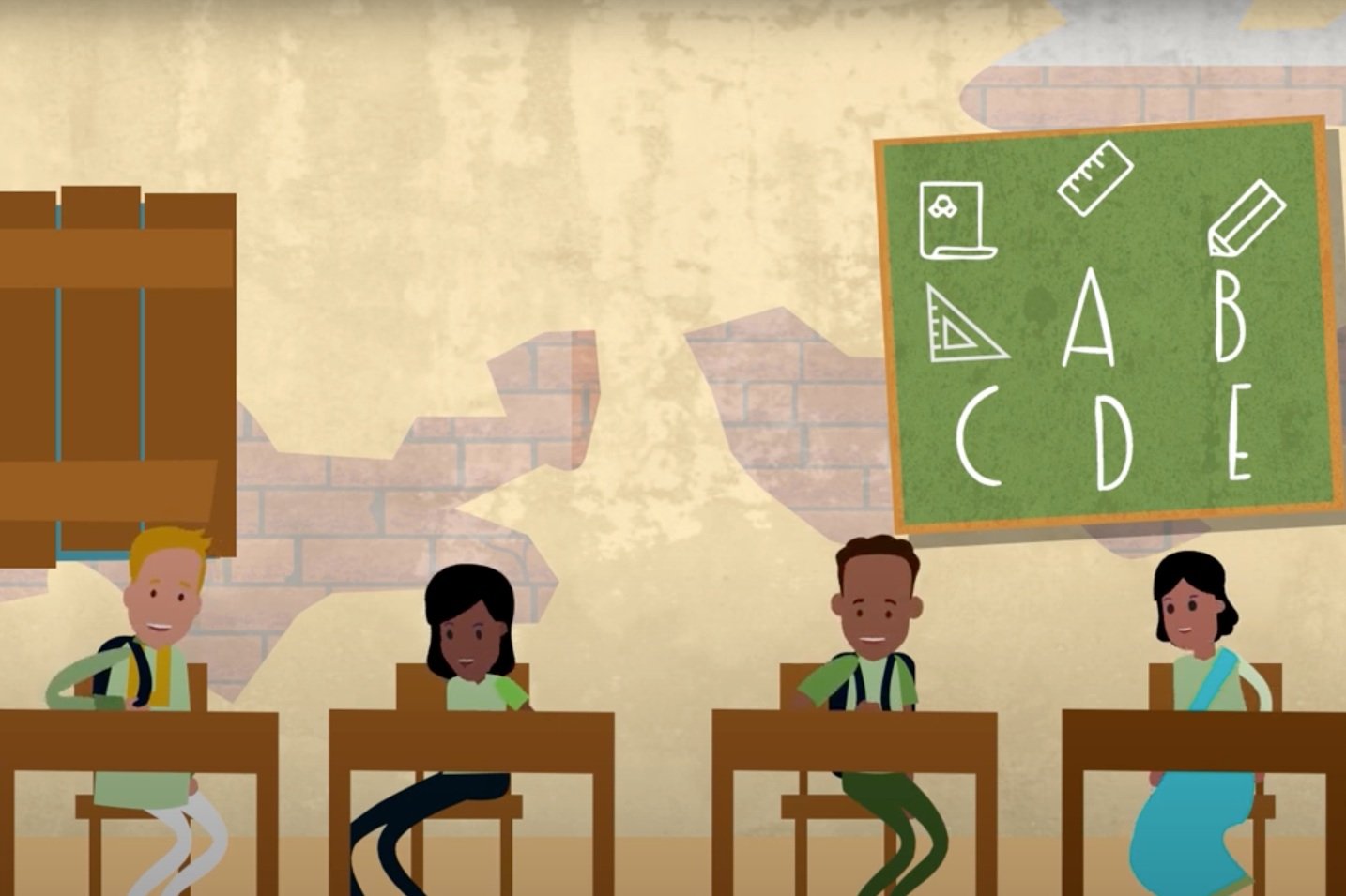Resources
An Interview with Dr. Lindsay Brown about BETTER: Building Expert Teachers Through Evidence-based Research
In 2019, Dr. Lindsay Brown at NYU Global TIES for Children co-developed and implemented the Building Expert Teachers Through Evidence-based Research (BETTER) program with Laura Killips.
Meet the HEA Phase II Grantee: Madrasati
We hear from HEA Phase II Grantees, Madrasati, as they share about their innovation, journey to scale and experience within the HEA programme. With thanks to HEA mentors NYU-TIES for their work on this video.
Meet the HEA Phase II Grantees - iACT
We hear from HEA Phase II Grantees, iACT about their innovation, scaling journey to date and their experience during their time with the HEA programme.
Introducing the PLAY toolkit [teaser]
The toolkit measures how caregivers and teachers support children’s engagement in their learning. The toolkit consists of observation and survey tools for children from birth to 12-years-old and can be applied across diverse learning settings and contexts
Meet the HEA Phase II Grantees - Cohere
We hear from HEA Phase II Grantees, Cohere about their innovation, scaling journey and time with the HEA programme.
RDAP Summit 2023: Building on Experience: Centering Communities in Data Creation and Access
NYU-TIES' Senior Data Associate Daniel Woulfin was one of the panelists on the #DataCuration panel at the Research Data and Assess Preservation Virtual Summit 2023, alongside other data curation experts from Penn State University, ICPSR at University of Michigan Institute for Social Research, and the University of Michigan. Dan gave a lightning talk on his open source web application, DIYDDI, which allows researchers to curate their own dataset metadata and generate codebooks and documentation.
Demystifying Informed Consent
Check out how we used multimedia alongside Sesame Workshop to combat critical challenges to the informed consent process, resulting in more active participation from families in the research.
Where to Find Measures
This video is a guide for those interested in assessing holistic child development outcomes through navigating the different resources we have available to find high-quality measurement tools that can provide us with meaningful data. A lot of the resources the video covers are what we, as researchers, look towards as we navigate the largely unknown waters of measure development for children in low-and-middle-income contexts (LMICs).
Reimagining Education in Emergencies: Lessons from research in three crisis-affected countries RewirEd Summit virtual session
The pre-recorded video was disseminated to global key stakeholders participated in the RewirEd summit.
L'éducation en Situations d'Urgence : Vidéo Explicative des Preuves Pour l'Action (3EA)
Cette vidéo explicative est axée sur « Construire une science pour l'action » : leçons tirées et conseils pratiques pour les chercheurs et les praticiens afin de faire avancer le domaine de l’éducation vers la construction d'une science pour l'action.
Education in Emergencies: Evidence for Action (3EA) Explainer Video
This explainer video is focused on “Building a Science for Action”: Lessons learned and practical advice for researchers and practitioners to move the field towards building science for action. The 3EA initiative, born out of a research-practice partnership between TIES and the International Rescue Committee, aims to generate evidence and tools on what works to improve children’s holistic learning and development. This work also aims to improve the quality of program implementation and to answer the questions of what works, how, for whom, and under what conditions.
Improving Education for Refugee Children: Insights from Rigorous Research
By the start of 2018, 25 million refugees fled across international borders to seek protection. Over half of these refugees are under the age of 18. Little rigorous evidence exists on strategies to promote refugee children’s academic learning and socio-emotional development. What role can universities play in helping to close this critical gap in evidence? This panel describes the state of education for refugee children broadly, zeros in on the conditions of refugee children in Lebanon and Niger, and summarizes insights evaluating innovative strategies to promote the academic learning and social-emotional development of the children.
Quality and equitable access grounded in local knowledge: Bringing preprimary education to scale (Video)
A great deal of evidence demonstrates the significant effects that quality pre-primary education can have on a child’s cognitive, social and emotional development, growth, school readiness and future economic potential. However, only 42 per cent of children in sub-Saharan Africa participate in any organized pre-primary education before the typical enrolment age for grade one. Such education is often only available to wealthier children, and is not of consistent quality, nor does it incorporate the local knowledge of learning processes that pre-school children should be exposed to before commencement of formal schooling.





![Introducing the PLAY toolkit [teaser]](https://images.squarespace-cdn.com/content/v1/5fa0560c3a27c834f6a6b5ac/1680266280744-Q88JNJN0GAHBS4VCLC7Q/Screen%2BShot%2B2023-03-31%2Bat%2B08.37.29.jpg)







